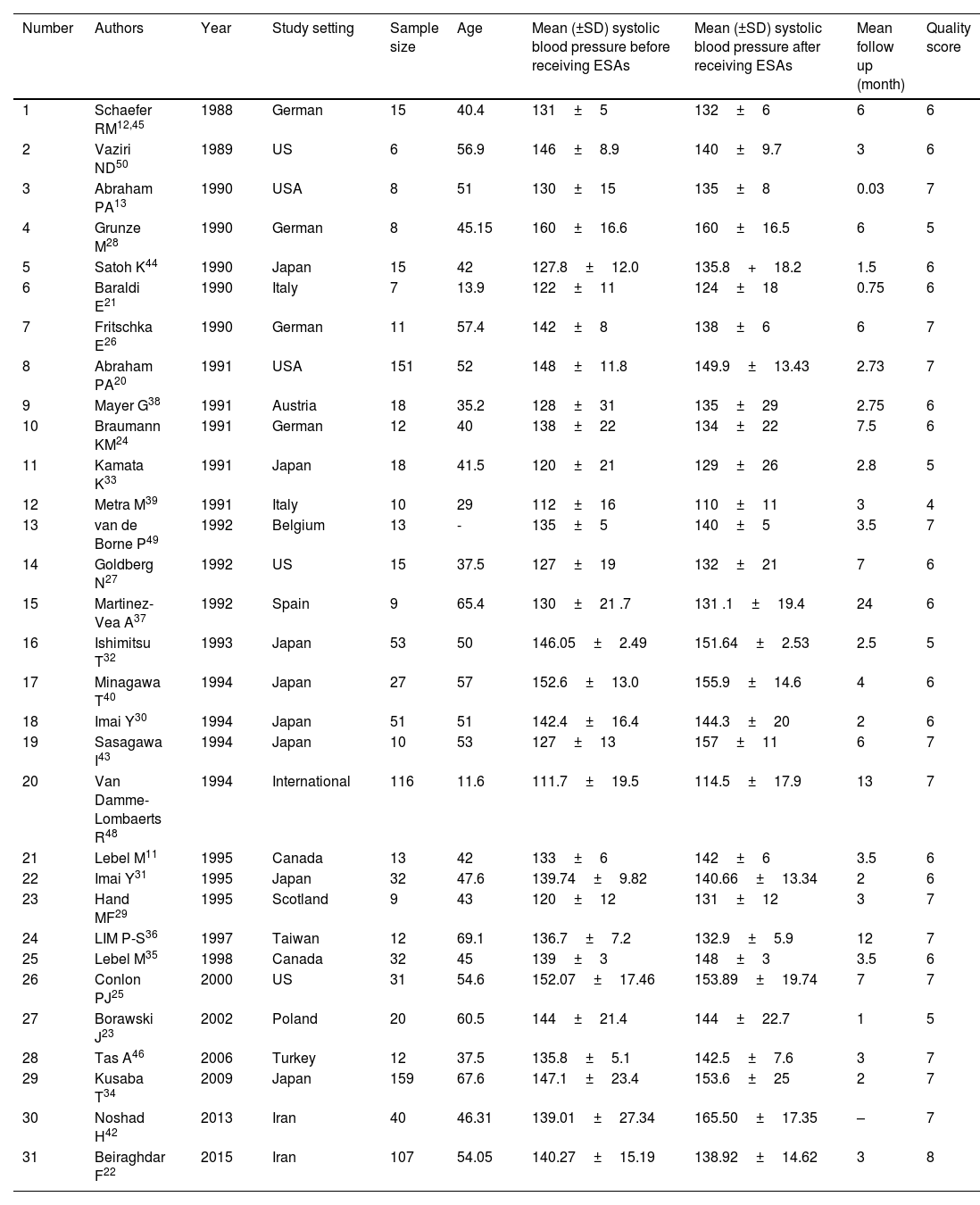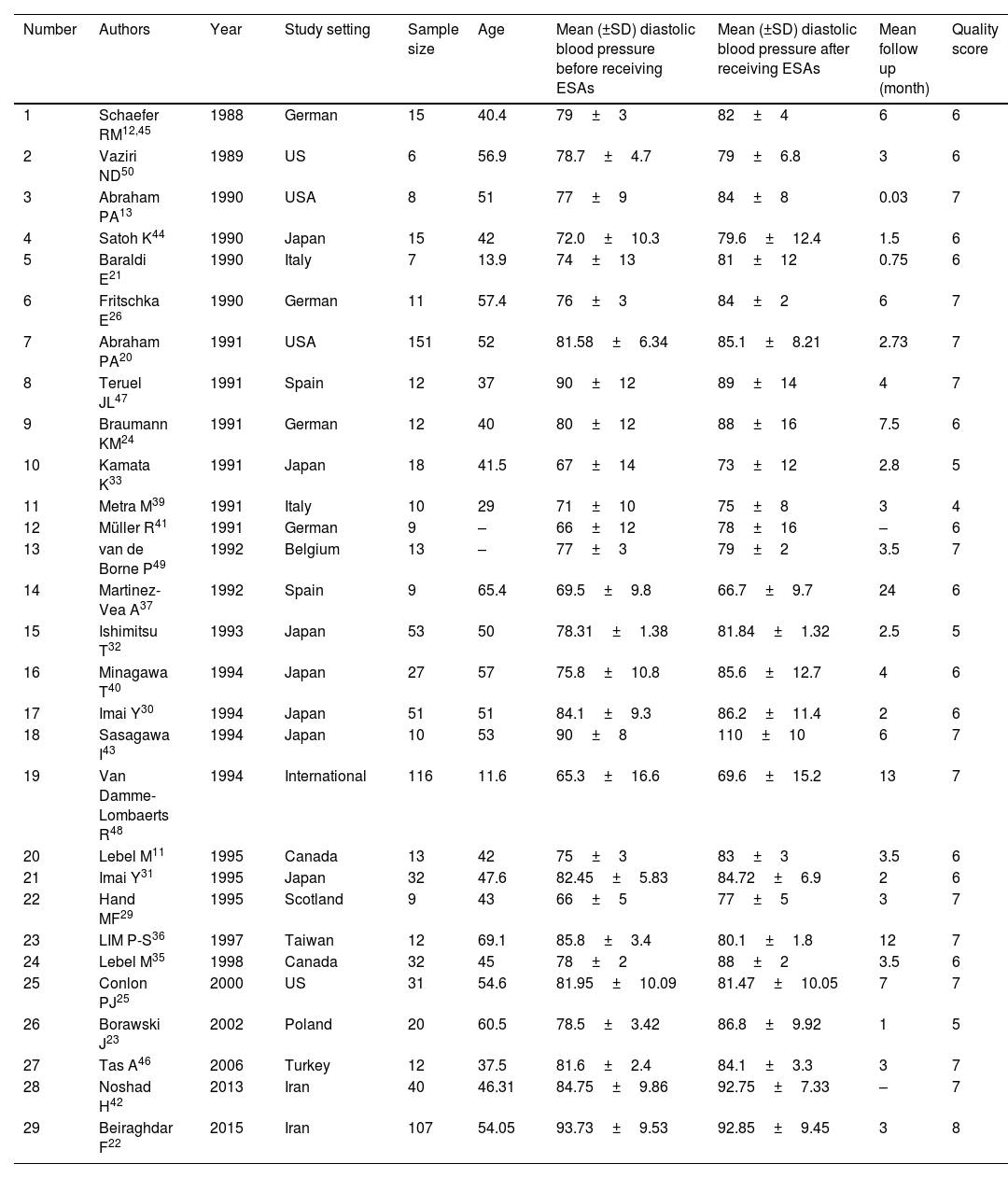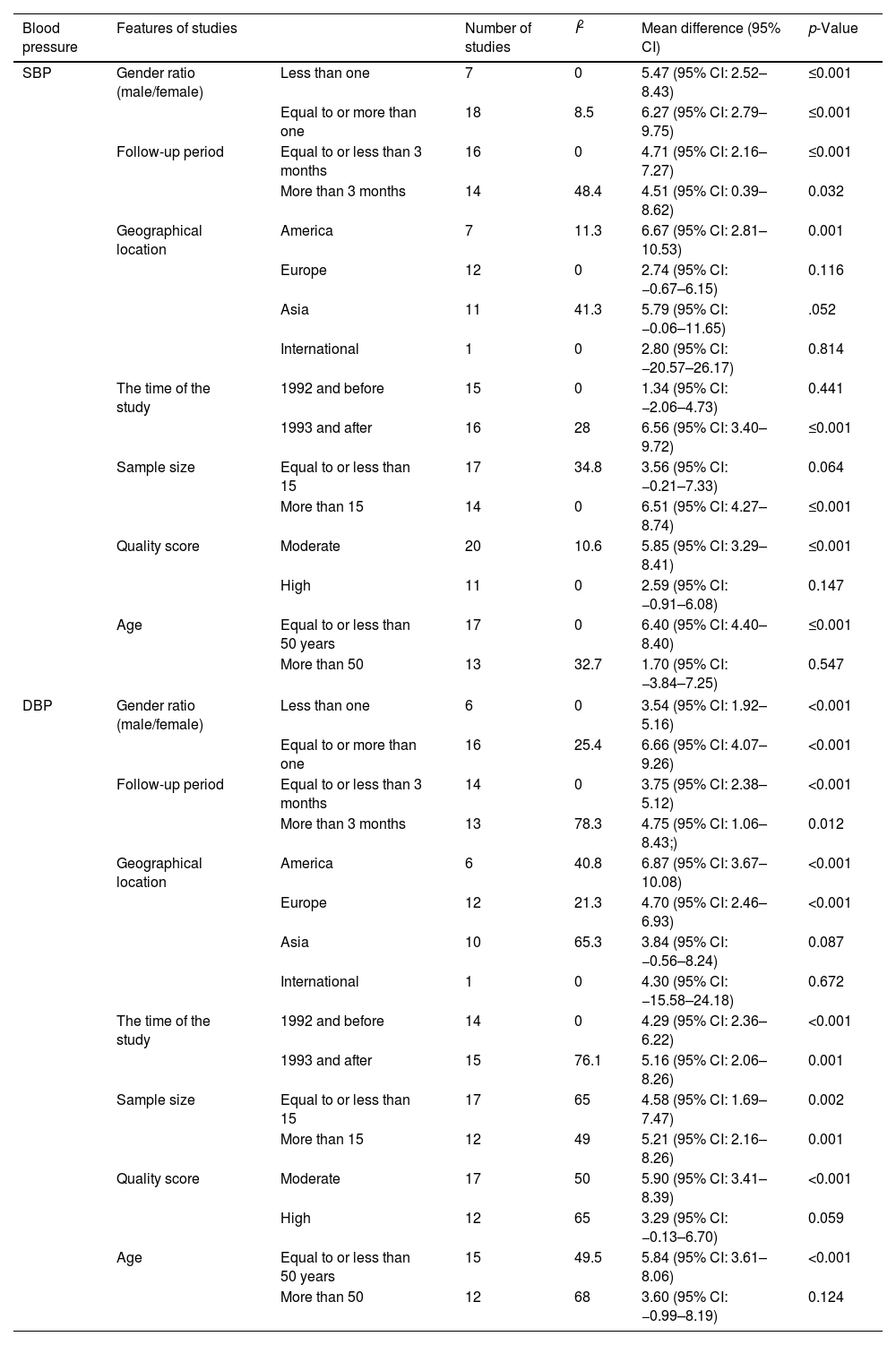Anemia is a common condition in end-stage renal disease (ESRD) patients. Erythropoiesis-stimulating agents (ESAs) are commonly used to treat anemia in these patients. However, concerns have been raised regarding their potential effects on blood pressure. This systematic review and meta-analysis aim to investigate the relationship between ESAs and changes in systolic and diastolic blood pressure in hemodialysis patients.
MethodThis study is a systematic review and meta-analysis based on clinical trial studies published in various databases, including Web of Science, Cochrane Library, Science Direct, PubMed, Embase, Scopus, and Google Scholar, between 1980 and the end of 2022. We evaluated the quality of articles using the Jadad scale checklist and analyzed the data using Stata 15 software.
ResultsOur meta-analysis included 34 clinical trial studies. The results showed a significant increase in both systolic blood pressure (SBP) and diastolic blood pressure (DBP) after the consumption of ESAs compared to before consumption. The mean difference in SBP was 4.84mmHg (95% CI: 2.74–6.94; p-value<0.001) and in DBP was 4.69mmHg (95% CI: 2.67–6.71; p-value<0.001). No publication bias was observed. Our meta-regression analysis showed that sample size, quality assessment score, and geographical location of the study were significant factors related to observed heterogenicity in to mean difference of SBP (p-value≤0.20). For DBP, the sample size, quality assessment score and follow-up duration were significant variables (p-value≤0.20).
ConclusionBased on the findings of our study, it appears that receiving ESAs is associated with a significant increase in both SBP and DBP in hemodialysis patients, with an increase of about 5mmHg.
La anemia es una afección común en pacientes con enfermedad renal en etapa terminal (end-stage renal disease [ESRD]). Los agentes estimulantes de la eritropoyesis (AEE) se usan comúnmente para tratar la anemia en estos pacientes. Sin embargo, se han planteado preocupaciones con respecto a sus posibles efectos sobre la presión arterial. Esta revisión sistemática y metaanálisis tiene como objetivo investigar la relación entre los AEE y los cambios en la presión arterial sistólica y diastólica en pacientes en hemodiálisis.
MétodoEste estudio es una revisión sistemática y un metaanálisis basado en estudios de ensayos clínicos publicados en varias bases de datos, incluidas Web of Science, Cochrane Library, Science Direct, PubMed, Embase, Scopus y Google Scholar, entre 1980 y finales de 2022. Evaluó la calidad de los artículos utilizando la lista de verificación de la escala de Jadad y analizó los datos utilizando el software Stata 15.
ResultadosNuestro metaanálisis incluyó 34 estudios de ensayos clínicos. Los resultados mostraron un aumento significativo tanto en la presión arterial sistólica (PAS) como en la presión arterial diastólica (PAD) después del consumo de AEE en comparación con antes del consumo. La diferencia media en la PAS fue de 4,84mmHg (IC 95%: 2,74-6,94; p<0,001) y en la PAD fue de 4,69mmHg (IC 95%: 2,67-6,71; p<0,001). No se observó sesgo de publicación. Nuestro análisis de metarregresión mostró que el tamaño de la muestra, la puntuación de la evaluación de la calidad y la ubicación geográfica del estudio fueron factores significativos relacionados con la heterogeneidad observada en la diferencia media de la PAS (p≤0,20). Para la PAD, el tamaño de la muestra, la puntuación de la evaluación de la calidad y la duración del seguimiento fueron variables significativas (p≤0,20).
ConclusiónSegún los hallazgos de nuestro estudio, parece que recibir AEE se asocia con un aumento significativo tanto de la PAS como de la PAD en pacientes en hemodiálisis, con un aumento de alrededor de 5mmHg.












